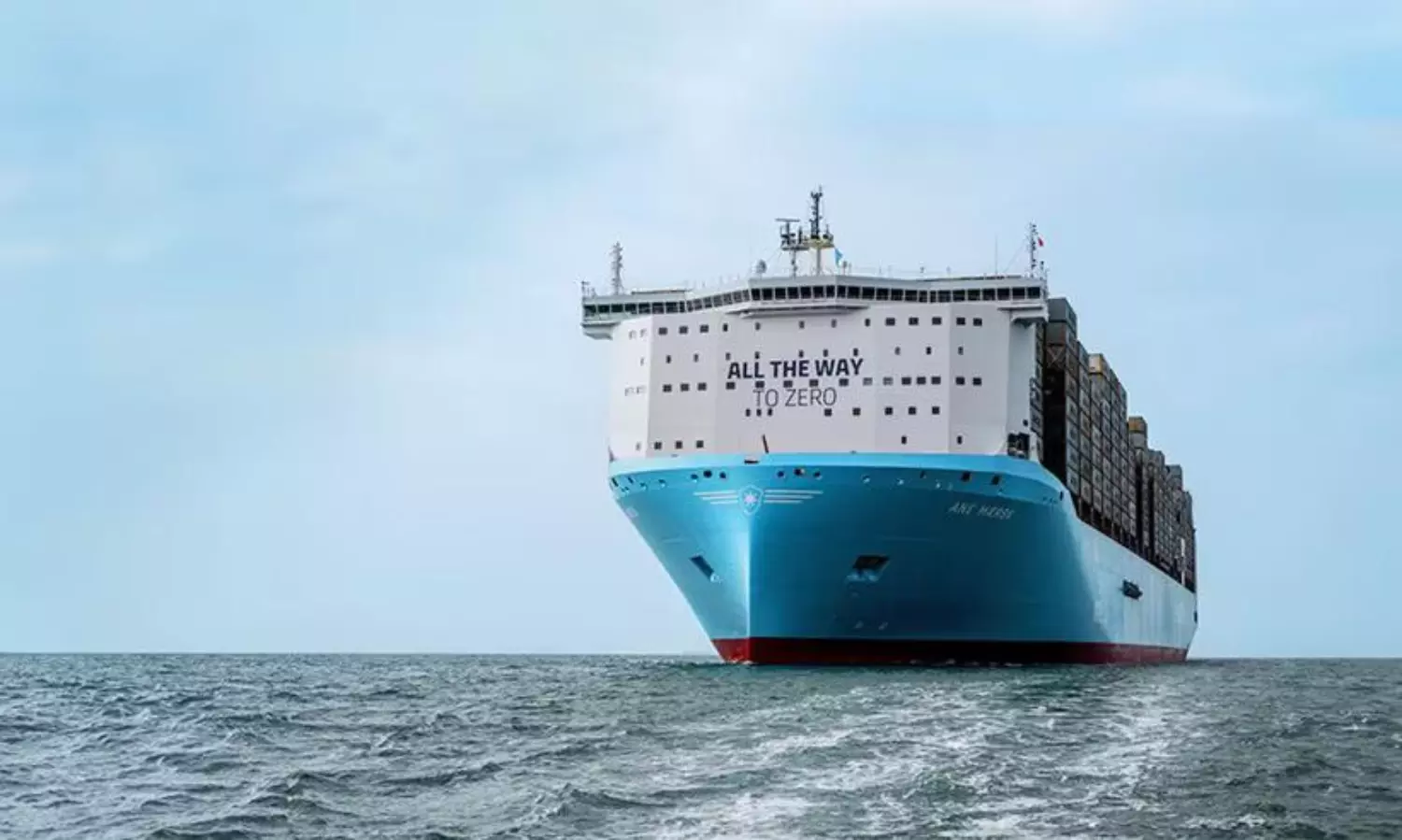Maersk issues advisory on new US tariffs impacting global supply chains
Customer update outlines implications for Asia, Europe, India, and other key markets; US-South Africa shipping routes also under scrutiny.

Maersk has issued a comprehensive global customer advisory highlighting the sweeping trade policy shifts underway in the United States, which are expected to reshape global cargo flows and customs procedures. The update provides shippers and logistics providers with clarity on a wave of new tariffs, regulatory changes, and enforcement measures being introduced across key US trade corridors. The advisory applies to businesses operating in Asia-Pacific, Europe, Latin America, the Middle East, India, and Africa, and comes at a time of intensifying scrutiny of global value chains.
According to the advisory, the United States and the European Union have finalised a new trade agreement under which most EU-origin goods will now face a 15% tariff. However, the agreement also removes or reduces duties in several industrial and agricultural sectors, including aviation components, semiconductor equipment, and certain farm products. Imports of steel and aluminium from the EU will now fall under a quota-based arrangement instead of prior tariffs.
The US has also concluded a separate agreement with Japan that mirrors these structural changes. It introduces 15% tariffs on Japanese exports to the US, most notably on automobiles and auto components, while facilitating duty-free access for selected American products. A parallel trade arrangement with Indonesia introduces a 19% tariff on Indonesian-origin goods bound for the US, while granting tariff exemptions on US exports entering Indonesia.
One of the most far-reaching measures in the advisory is the suspension of the long-standing de minimis threshold for low-value imports under Section 321. Beginning 29 August 2025, the US will eliminate the $800 exemption that previously allowed most e-commerce and small parcels to enter without formal customs clearance. All inbound shipments, regardless of value or origin, will now require full entry filing, proper valuation, and compliance with all applicable US Partner Government Agencies. While personal and postal shipments will continue to be exempt from filing formal entries, they will now be subject to either ad valorem or flat-rate duties.
Additional policy measures already in effect include a 50% tariff on selected Brazilian-origin goods, applied under the International Emergency Economic Powers Act from 1 August. Another order imposes a 50% ad valorem duty on a wide range of copper imports, including bars, sheets, tubes, and fittings, although copper ores, cathodes, and scrap materials are exempt. From 7 August, the US has also introduced a “Reciprocal Tariff Framework” that recalibrates tariffs based on each trading partner’s policy alignment. Countries not listed under the new schedule will see an additional 10% duty applied, while any cargo found to be falsely declared or transhipped may face a 40% duty rate alongside enforcement penalties.
In response to these changes, the Danish shipping company is urging its customers to assess their exposure across all affected trade lanes. The advisory recommends that companies, especially those engaged in high-volume, low-value shipments, re-evaluate their compliance frameworks, valuation practices, and origin documentation. Businesses are also being encouraged to review their supply chain controls in anticipation of stricter enforcement, audits, and delays at US ports of entry. To aid in the transition, Maersk’s Trade and Tariff Studio and Compliance Advisory Team are offering services including tariff exposure analysis, import entry restructuring, and readiness training.
While the primary focus of the advisory is global in scope, multiple sources have confirmed that Maersk is also preparing to suspend direct container services between South Africa and the United States from 1 October 2025. These shipments will be rerouted through European transhipment hubs, which may extend delivery timelines and increase logistics costs. The move comes as the US government reassesses South Africa’s eligibility under the African Growth and Opportunity Act (AGOA) amid geopolitical tensions, a development that industry insiders say is contributing to shipping line adjustments.


